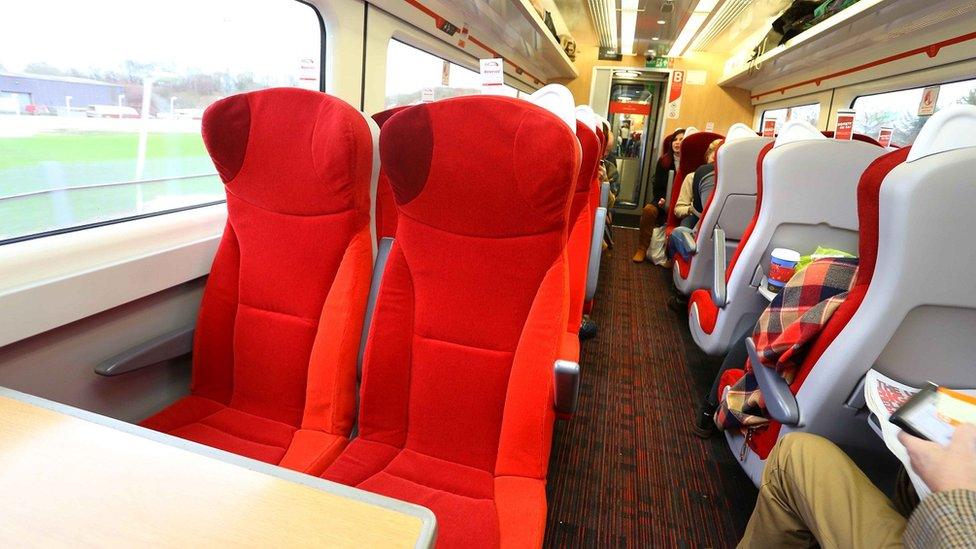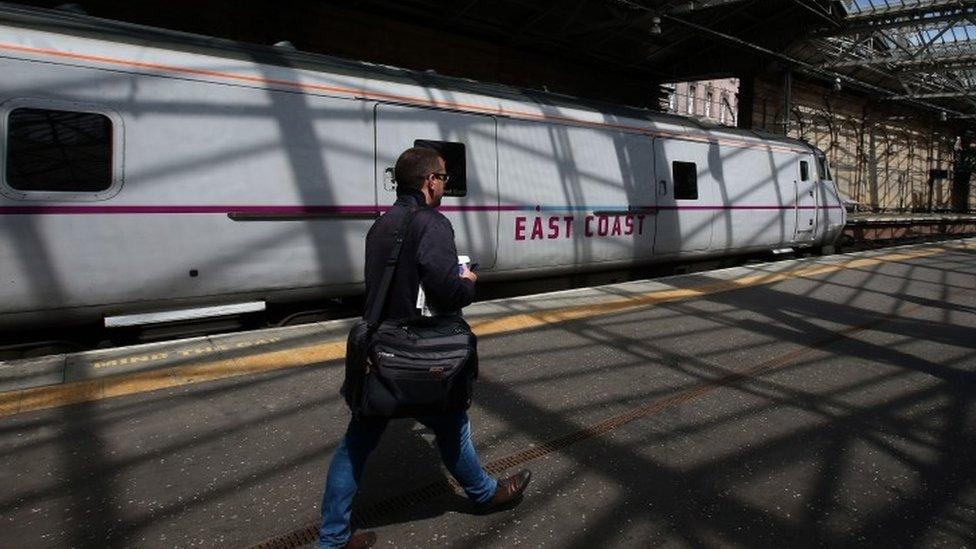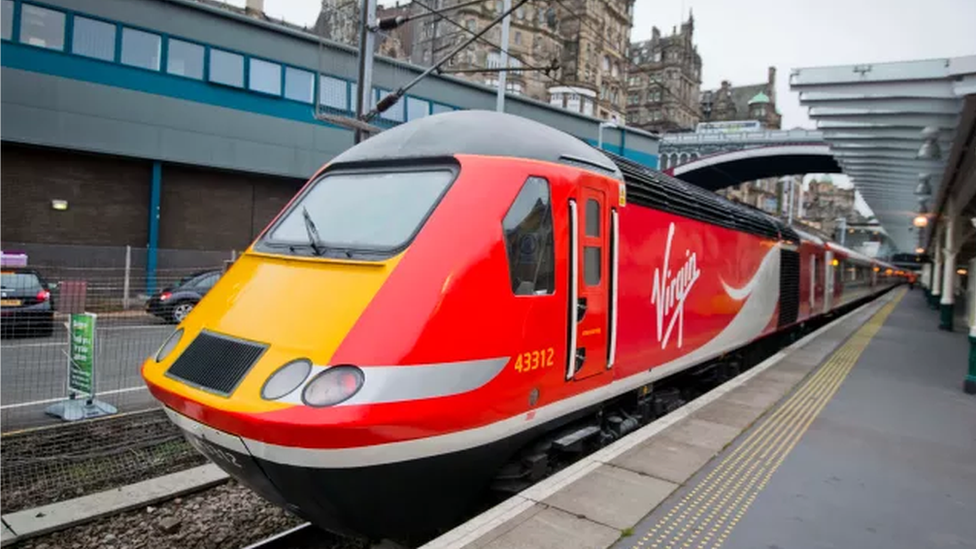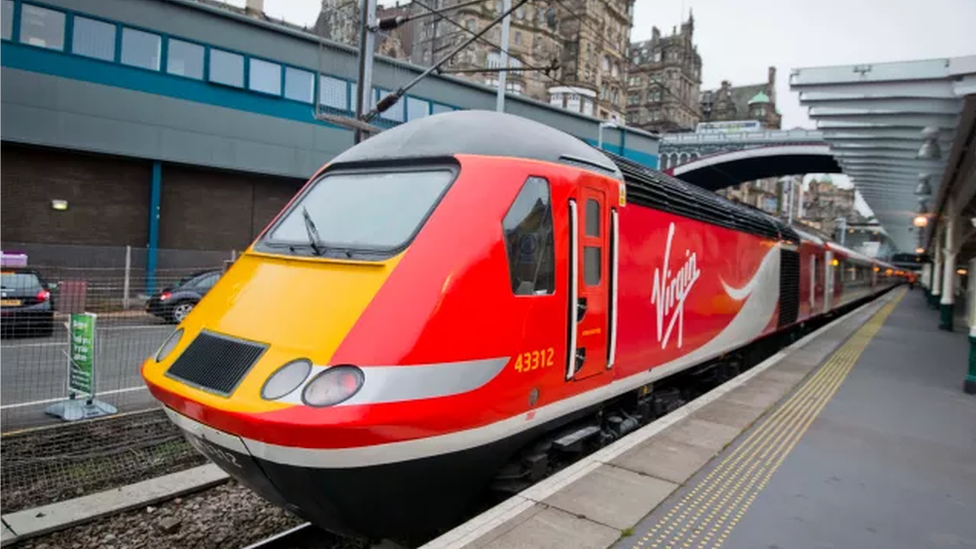The inside track on East Coast mainline
- Published

What has been happening with the East Coast mainline?
The company that runs it, a joint venture between Stagecoach, which holds 90% of the franchise, and Virgin Trains, which has the other 10%, is giving back its right to run the line early.
That move has sparked two inquiries, one by the public spending watchdog, the National Audit Office, and one by a specialist committee of MPs.
How was it meant to work?
Virgin Trains and its bigger partner Stagecoach paid £3.3bn in 2015 for the right to run the line until 2023.
The route runs from London's Kings Cross station, up through Peterborough and passes through Leeds, York and Newcastle on its way to Edinburgh.
But, just three years into its eight-year franchise, they are giving up.
Virgin boss Sir Richard Branson has said the deal cost Virgin and Stagecoach more than £100m.
The government view is that they were simply over-confident. They based their bid on an increase in passenger numbers that didn't materialise.
Transport Secretary Chris Grayling has conceded that there is a tendency for franchise bidders to "overbid" to make sure they are successful.
Others say Network Rail let them down by lagging behind on a programme of rail improvements which would have allowed them to increase the number of services.
Who loses out?
On the face of it, the government will lose the remaining £2.3bn of the £3.3bn promised by the franchise. However, the amount it will lose or gain ultimately will depend on what sort of money the replacement service can generate.

The East Coast mainline was government-run until Stagecoach and Virgin's bid
Although the two companies at the centre of the franchise say they have lost money on it, they are still interested in - and will get the chance to run - other parts of the network.
Virgin Trains runs trains on the West Coast line from Euston through Birmingham to Glasgow. Meanwhile Stagecoach is on the shortlist for the East Midlands franchise from London St Pancras to Sheffield.
What happens now?
There shouldn't be any disruption in the short term.
Transport Secretary Chris Grayling says it is important that passengers don't lose out and he's determined that services will not be affected.
His department is currently putting arrangements in place to take over the running of the East Coast mainline service until more wide-ranging reforms are rolled out in 2020.
Mr Grayling says it will either be run on a not-for-profit basis or it will get taken into government hands.
Why do I have a sense of deja vu?
This is the third franchise on this route to run into trouble.
In 2005, GNER signed a £1.35bn, 10-year deal in what was then the biggest contract in European railway history. One year later it was stripped of the route.
In August 2007, National Express agreed a £1.4bn deal, but then handed it back to the government in 2009 against the particularly challenging background of the financial crisis.
It was then government-run until Stagecoach and Virgin's £3.3bn bid in 2015.
Will rail franchising be affected?
The National Audit Office and the Transport Committee both think there are lessons to learn and that they will get to the bottom of it with their inquiries.
The affair has led to renewed debate over public ownership of rail franchises, with Labour's Lord Andrew Adonis, who was responsible for re-nationalising the route in 2009, accusing the government of "bailing out" private firms.
Lilian Greenwood, chairwoman of the Transport Committee, said the failure of the East Coast franchise had wider implications for rail franchising and the competitiveness of the current system.
She added that there were "serious questions to be asked of the train operator, Network Rail and ministers", and said the Transport Committee intended to ask them.
- Published12 February 2018

- Published29 January 2018
